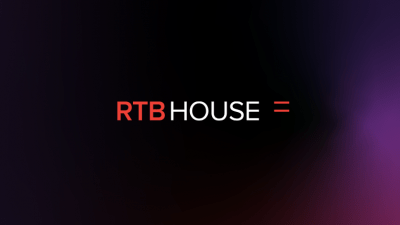Last Updated on: 3rd June 2024, 04:48 pm
A year after the previous extension of the deadline for third-party cookies deprecation, Google did it again, this time until the second half of 2024 [Note: In April 2024, it was further postponed until early 2025]. At the same time, Google released two important pieces of information: The FLEDGE origin trial will most likely be extended until late October and will also cover Chrome stable users, and the feedback report for Q2, which is a result of the company’s commitments to the CMA.
Table of Contents:
- Conclusions from the origin trial until now
- Transparency is required
- Incentives to motivate the industry to adopt the Privacy Sandbox
- Google Chrome third-party cookies deprecation—utilise the extra time
Conclusions from the origin trial until now
With the current FLEDGE origin trial, we have seen over 2,700 advertisers being launched globally for testing using this API. So far the FLEDGE API has allowed vendors to build custom, direct-to-publisher integrations, allowing multiple scenarios to be validated such as adding users to interest groups on advertiser websites, displaying ads after winning FLEDGE auction, counting organic impressions and clicks. There are, however, some issues that need to be addressed.
The first bottleneck in the Origin Trials has been FLEDGE’s availability in Chrome which is because only 50% of Chrome beta version users have been included in the test population. Google’s promise to enable testing for Chrome stable users is very welcome news. Only a large enough scale will allow the industry to determine the usability and effectiveness of Privacy Sandbox APIs. We are also looking forward to seeing users interacting with the prompt that Google plans to display to them – if they will be willing to test Privacy Sandbox out.
The second setback is that supply-side platforms (SSPs) have not yet delivered a solution compatible with FLEDGE, that would provide publishers’ advertising inventory to DSPs participating in the trial.
Transparency is required
As a result of these challenges, it is imperative that Google explains how it will make transition periods, crucial for the industry to shift from cookie-based to new, privacy-first solutions, work. The transition periods known as “General Availability” and “Third-party cookie phase-out”, are supposed to last over a year, as indicated in the official timeline. The lack of transparency and clarity on this process may adversely impact the market adoption rates.
As it currently stands, there are two potential paths Google may follow for the third-party cookies deprecation:
- FLEDGE APIs availability will be increasing, with the gradual deprecation of third-party cookies
- Third-party cookies will be preserved during the interim period but will require a definitive opt-in from users in the browser’s UI.
However, neither of these approaches will be sufficient enough to motivate the market participants to fully transition to FLEDGE API instead of using alternative tools. Google has to provide meaningful incentives for the industry to do so.
Incentives to motivate the industry to adopt the Privacy Sandbox
An example of a positive incentive could be industry-wide access to data previously limited to the web browser vendor when using Privacy Sandbox APIs. Sharing it would have to be done with the utmost respect to the user’s privacy. This would result in market participants, both advertisers and publishers, building more useful advertising tools.
Google may also operate on negative incentives, for example, it could take a decisive approach to fighting fingerprinting mechanisms. There is a great need for Google to start limiting fingerprinting efficiency before introducing FLEDGE. Otherwise, the market will move away from cookies not towards safe, privacy-centric solutions, but towards those that violate it even more.
Google Chrome third-party cookies deprecation—utilise the extra time
While welcoming the news about the timeline extension, we hope that it will not affect the pace with which we as an industry move forward. Last year, shortly after the previous announcement, there was a visible slowdown in the commitment to work on privacy-oriented marketing APIs across the ecosystem. If this happens again, the goals set by Google of expanding testing across the industry and increasing Privacy Sandbox adoption may not be achieved.
On the other hand, there are signs of a significant improvement from Chrome in defining and communicating the role of specific actors in FLEDGE. A positive example is the sessions co-organized by IAB Europe, where the application of individual APIs is much better explained from the point of view of both the advertiser and the publisher. We hope that such initiatives will be continued.
If you have any questions, comments or issues, or you’re interested in meeting with us, please get in touch.





